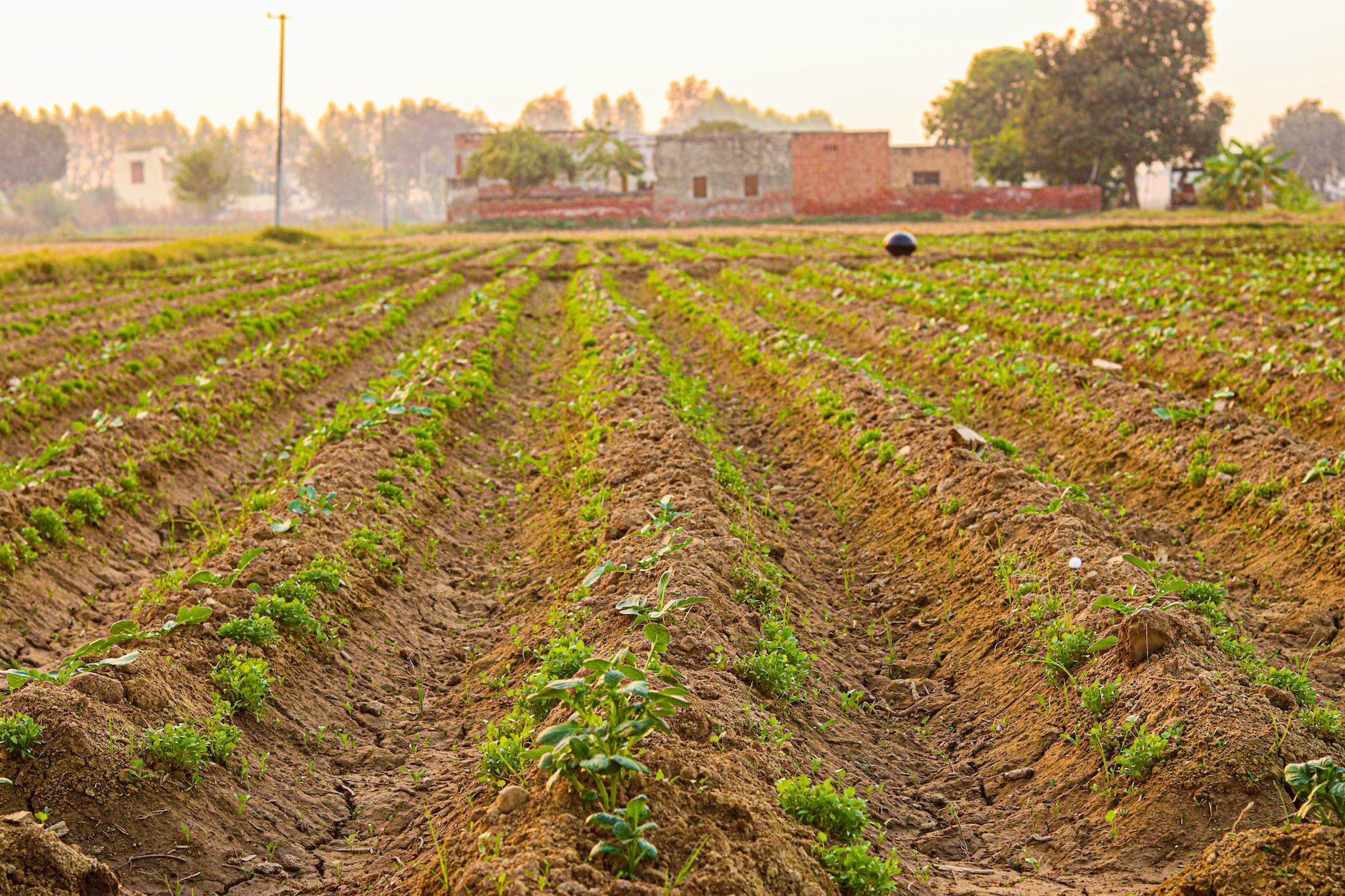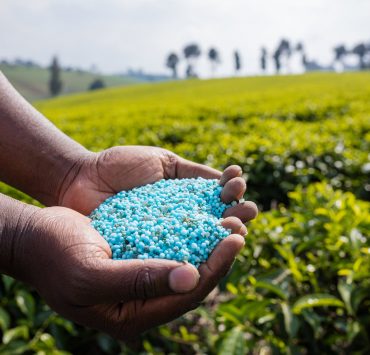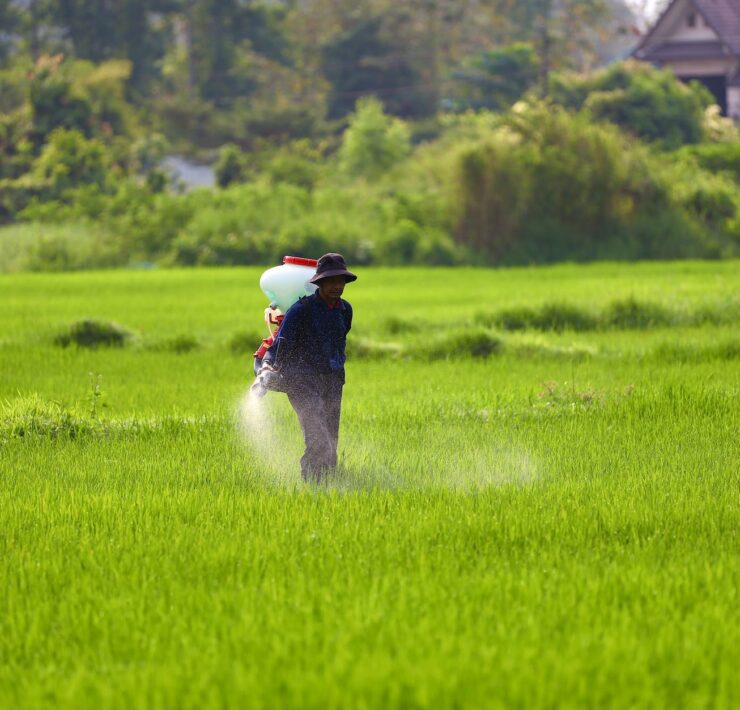Kenya lifts ban on GMO crops. The dangers of GMOs to your health.

Samuel Phillips is a writer, graphic designer, photographer, songwriter, singer…
“In accordance with the recommendation of the Task Force to Review Matters Relating to Genetically Modified Foods and Food Safety, and in fidelity with the guidelines of the National Biosafety Authority on all applicable international treaties including the Cartagena Protocol on Biosafety (CPB), Cabinet vacated its earlier decision of 8th November, 2012 prohibiting the open cultivation of genetically modified crops and the importation of food crops and animal feeds produced through biotechnology innovations; effectively lifting the ban on Genetically Modified Crops. By dint of the executive action open cultivation and importation of White (GMO) Maize is now authorized.” Dispatch from cabinet, STATE HOUSE EXECUTIVE OFFICE OF THE PRESIDENT
The above statement is contained in the press release that was published on the 3rd of October 2022 from the office of the President of Kenya. It is an executive order that removes the ban on genetically modified crops, which was put in place in 2012.
When the news came out on social media, some people instantly condemned the removal of the ban while some, whom I think really do not care, especially since their only concern seems to be for there to be maize meal (ugali), lauded the lifting of the ban. But I really do not know how much of the health implications of the introduction of GMOs into Kenya Kenyans themselves are aware of. Have we really understood what GMOs are and to what extent they compromise the health of humans? I really don’t think so. But here is what one of our friends, Dr Peter Mokaya, a medical doctor and organic farmer wrote in an article where he defined what GMO foods are. He said
“GMO foods are foods that are produced from seeds which “mimic” natural seeds but are “modified” in laboratories to express certain specific desired traits referred to as “events” that would not normally occur in nature, without the “tinkering” process in labs. A well-published safety concern about GMOs foods is that they manifest allergenic and immunogenic side effects which, in general, cause dysfunction of the immune system.” Also, writing about what GMOs, Glyphosate aka Roundup, Vaccines, 5G and Covid19 have in common, he said:
“GMOs, Glyphosate(or GBH), Vaccines and 5G, singularly and collectively, negatively impact the immune system, hence the term “convergence of toxicity”. Needless to state, Covid19, is apparently a chimeric virus, which disrupts the immune system and causes immunological dysfunction which triggers a “cytokine storm” in the lungs, which is often the cause of respiratory suffocation and death. Emerging evidence suggests that these negative immunological effects are made worse (they work synergistically) or compounded by these other environmental triggers. The collective assault and damage to the immune system is what GMOs, Glyphosate, Vaccines, 5G and Covid19 have in common.”
I am still in amazement at how the Kenyan government can with its eyes opened decide that the World Health Organization (WHO), the Food and Agriculture Organization (FAO), United States of America’s Food and Drug Administration (FDA), and the European Food Safety Authority (EFSA) are all operating with the cleanest of intentions, and they can be trusted with their judgment concerning the consumption of GMOs. If the food recommendations of the FDA can be so trusted when they say GMO food is healthy for human consumption, how is it that the US had some of the largest cases of death during the pandemic, especially since it’s well known that much of the food Americans eat is genetically modified? Should we trust their judgment to allow GMOs in Kenya when their food systems have already compromised much of the immune systems of their people? Or is it WHO that can be trusted, especially when their agenda is clearly aligned with the globalists’ globalization drive? Did all these organizations suddenly become saints overnight for us to trust them?

There are independent researchers, medical doctors, and farmers in Kenya that have been drumming the dangers of GMOs to anyone who cared to listen, but it seems the government has decided not to listen and I do hope the Kenyan people won’t pay a steep price for this carelessness. We cannot turn a blind eye to what is going on in the world around us, or we will pay very dear prices in the years to come. For me, it does not make sense to only consider the short-term gratification of a decision vis a vis availability of maize and not the possible long-term effects of such decisions. And these long-term effects are even more frightening when you consider the fact that you may not be able to reverse the health effects when they show up years down the road.
One of the reasons given for the removal of the ban on GMO crops is that these GMO seeds are drought resistant. But why are we even talking about drought in Kenya where flooding occurs every year? It does not make sense to me why flooding will happen and kill people and animals; drought will happen and also kill people and animals. How do we even make sense of death by flooding and then death by drought, when the water from the flood is the solution to the drought? Does it not show that we have spent years fighting the wrong things while not putting in place accurate measures to deal with such national issues? Except maybe, things are the way they are by the intentions of some hidden faces who make money from donations they receive from the world over to “fight” drought or flooding. So, they never really deal with the issues, but make a business out of it while those who are dying of both events are not the priority. A thinking person should know that it makes sense that the season of flooding should be when rainwater is channeled to reservoirs, in order to mitigate the season of drought when it comes. So why have those reservoirs not been made a priority in all of these years of “fighting” drought? The whole story smells of an evil money-making scheme.
More GMO seeds mean more glyphosate usage
There is a lot in common between the increase in GMO seeds and the usage of glyphosate. But one that clearly stands out is, both are created by the same faceless and evil-minded humans who want to create a world of human zombies who are completely at the mercy of evil and wicked pharmaceuticals. For when you corrupt your natural immune system by eating GMO foods that were planted using glyphosate (they really don’t grow without it), “nourished” with chemical fertilizers, and where stored in silos with all manner of chemicals for preservation, then the only option you will have is to patronize the pharmaceuticals who are just a branch of the same evil enterprise to keep the entire world in the pockets of a few. You must be open in your mind enough to constantly connect these dots or you will by your own hand and with your own money buy the very death that you wish to avoid.
Concerning GMO seeds and the consequent usage of glyphosate to plant them, here is something I found online:
Most GMOs tolerate the pesticide glyphosate, but this genetic alteration remains controversial because this pesticide might cause cancer. From 1995 to 2002, the use of glyphosate went from 2,500 to 30,000 tons a year. This increase shows the dramatic rise of growing GMOs. In fact, 94 percent of soybeans and 89 percent of corn grown in the U.S. are genetically modified.
Glyphosate residue leaches into the genetically modified food grown in treated fields through a process called desiccation. When you eat these foods, you might allow glyphosate into your gastrointestinal tract. This exposure likely has negative consequences. For example, increases in circulating glyphosate correlate with a diagnosis of autism. – www.livestrong.com
Now, how can any sane person know and also understand that GMO crops thrive with the use of glyphosate and that glyphosate is dangerous to health and then still go ahead to recommend the consumption of such deadly food?
There are alternatives grains for making Ugali outside of maize
This is one part of the entire narrative of maize consumption, especially in Kenya that I still do not understand. I just can’t understand what the loyalty and almost a religious attitude Kenyans have towards the eating of maize and maize products, to the point where, even when they are told that the maize that is imported or cultivated within Kenya is either compromised through genetic modification, pesticides, chemical fertilizers, and even the so-called vitamin fortification they add to packets of maize flour sold in supermarkets, which are chemical based fortifiers and are harmful to humans, Kenyans still don’t seem to favor an alternative to maize products. And I am not saying that eating maize or having a special spot for maize is bad, that’s not what I am saying. I am only saying that change is an inevitable part of our lives as humans, thus, when there is a need for change like we have right now, we must take hold of it. So, now that the poison called GMO maize has come to our doorstep, I think it’s time we pay attention to reason and change. For if modifying crops genetically does not make them yield better and if it also does not make them more nutritious than natural seeds, then of what purpose is the mad rush to allow GMOs? What if the entire GMO narrative is another aspect of the global poisoning and undermining of the immune systems of the general world population?
The fact is that, the government in its drive to deal with the issue of climate change, if really it is an issue since it seems most of these things are man-made, can choose the GMO option, but you as a free-thinking person don’t have to buy into the poison. It’s your God-given right to decide what you ingest and feed your family with. So, make the right choices going forward concerning your food health. This entire GMO story looks like a globalist evil agenda to me and we should stop it. Even if you say the GMO corn is for animal feeds, who are those who will eat the beef, the mutton the pork from the cow, goat, and pig respectively? Is it not humans?
For our Kenyan brothers and sisters, there are lots of indigenous foods that you can go back to prioritizing in your daily food intake. Maize is not even the champion in the list of these nutritious crops and it’s also not indigenous to Afrika. Here are some maize alternatives, some of which we have tried ourselves and they are very good for Ugali.
- Sorghum flour
- Millet flour
- Cassava flour
- Plantain flour
In fact, in my house, we do a combination of the above-listed flour, to increase the nutritional value, and it’s very good. You just need to know what works for you. Other indigenous foods you can eat outside of maize:
- Sweet potatoes
- Arrowroot (I think this is called cocoyam in West Afrika)
- Yams
- Plantain
- Matoke
- Tef
We would be remiss if we did not tell you of alterations to, or plans to alter many of these popular foods. GMO infusion of vitamin A into matoke, sweet potatoes and creation of GMO yams for instance are things to watch out for. In fact, if you have noticed that a certain food you once ate has started looking different in the last 10 years or so, take note and find out the reasons why. You could be surprised, even if it is unpleasantly so.
The advantages and the disadvantages of Genetically Modified Maize
I saw these facts on a website called vittana.org. The writer gave very clear facts about GM maize and I think you should pay attention to both the advantages and disadvantages.
Advantages
1. It can be infused with additional nutritional benefits.
In the United States, as many as 1 in 7 people go hungry. For children, the statistic is closer to 1 in 5. More than 3 billion people on our planet today earn less than $2 per day. By taking corn and genetically modifying it so that it can produce a product with varied nutritional content, more people can have what they need to be healthy. Vitamins and minerals can easily be added to ensure a well-rounded diet.
2. It can be grown for specific purposes.
When we think of corn, it is often the ears of corn that can be found in the grocery store. Corn, however, can be grown for a number of different purposes. Field corn, when genetically modified, could provide livestock with better feed. Corn that is grown for ethanol production could produce a higher overall yield. For the corn we eat, it could be grown to taste better.
3. It offers a longer shelf life without preservatives.
Genetically modified corn offers consumers the chance to experience less waste with their grocery bill. Corn that has been modified can last longer without the need for preservatives, which are chemicals added to the food to increase their shelf life.
4. It could reduce the cost of other food products.
Corn products are used in a wide variety of goods. From cereals to syrups and everything in-between, the average person will eat 42 pounds of corn syrup per year in the United States. An additional 1,500 pounds of corn is consumed per person, per year. When corn can live longer and have more consistency in its yields, then the added supply could drive down the cost of this commodity so that other foods become more affordable. That would provide better food access to the world-at-large.
5. It allows us to know more about who we are.
The process of mapping the genetics of corn is similar to the process of mapping the genetics of humans. By understanding this process better, we can unlock potential breakthroughs that could benefit medical science for years to come.
Disadvantages
1. It can change the landscape of croplands.
Genetically modified corn grows like any other plant. It requires pollination and it will produce seeds. Cross-pollination can affect adjoining croplands and interfere with the natural development of non-GMO corn. If a crop is planted that would be resistant to a specific pesticide, then everyone else in the region must use the same pesticide to not place the yield at risk of failure.
2. It doesn’t provide an economic benefit.
Although the risks of a crop failure are reduced when working with genetically modified corn, there isn’t a proven economic benefit from using this type of crop. Most GMO corn takes as long to grow and produce a yield as non-GMO corn. It is treated as a commodity, just like non-GMO corn, and trades at the same rate. Most crops will even produce a similar yield.
3. It can cause allergic reactions and other health scares.
If a person is allergic to soybeans and soybean genetics are infused into the genetically modified corn, then there is an increased risk for that person to suffer from a reaction even though they’re eating a corn product. People who follow the vegetarian lifestyle might not realize that their corn has been infused with pig DNA. There may be cultural, religious, or societal implications to consider with these practices as well.
4. It could be a contributing factor to antibiotic resistance.
We already know that when a bacterium is exposed to an antibiotic for an extended period, it will grow resistant to the drug. That makes it more difficult to eliminate when it is posing a health threat to a human. The CDC reports that more than 2 million people are infected with antibiotic-resistant bacteria every year and over 20,000 people die from those infections. With genetically modified corn, it is common to modify seeds using genes that are resistant to antibiotics, which could be an influence on the growing levels of resistance being seen.
5. It could be a carcinogen.
Although the research was retracted, rats that were fed genetically modified corn that was tolerant to a herbicide developed higher rates of cancer and had an increased risk of tumor development and early death compared to rats that were not fed the corn. Problems with the study were found to be numerous, but the study has been republished elsewhere and could be evidence of the dangers of GMO corn.
6. It is often patented.
Because of the costs of producing genetically modified corn, organizations involved in its creation have been granted the right to have their product patented. That means a royalty goes to the organization with every yield. That patent has also caused some organizations to pursue the owners of adjoining croplands where GMO seeds have grown through unintentional spreading or contamination because they were not given a license to grow the product.
My take and advice
It is very clear from the above pros and cons of eating genetically modified maize that, we really do not need these GMO foods. Why put our health and lives at risk just to prove to ourselves that we can outdo natural ways of how plants are supposed to grow? Also, we should stop deluding ourselves that we need GMOs because of climate change. Climate change in itself is mostly a lie and the supposed change in climate is also a direct consequence of our pride and foolish use of the land. We cannot have a million acres of land belonging to one man, where he plants just wheat, with loads and loads of chemical fertilizers and pesticides, which in turn harm the atmosphere and then complain of earth warming. And this farming system is replicated a million times over, all over the world. What else did we really expect from such misuse of land and the environment? Neither should we delude ourselves by excusing those who in the name of military weapons testing, do all manner of geoengineering, playing God with nature then come back to complain of climate change. Nor should we delude ourselves to think that Dubai just magically changed from being a desert to a futuristic city without some level of atmospheric energy manipulation and other weather-altering technologies. The locust invasion a few years ago, which was also tied to whatever geoengineering that was going on in the Middle East, should teach us a lesson or two.
Consider this as you make your decision on GMOs and the other poisonous inputs we are being bombarded with from every side. If lands that are meant for planting food crops, seeds that are planted, farm inputs, food on our shelves and shops, etc. are all controlled by corporations, is that not worse than climate change itself? But that’s what the narrative of climate change, vaccines, GMO seeds, and GMO food products are all about. It’s a massive GLOBAL CONTROL mechanism. So, when we talk about the evil of GMOs, it’s not just about the poisonous food side of things, it’s also about the consequence of giving your rights to land, seeds, food, and plant life in its entirety, to global corporations. This is the evil of UPOV. This is one of the things that the UN’s Agenda 21 is about. A total global control based on state capture and control of natural resources and which is why the new slogan for The World Economic Forum is “you will own nothing and you will be happy”. Don’t fall for this massive BS with your eyes wide open.
As I wrote this particular article, I got a notification of an article published on The Citizen website, a Tanzanian news agency. The title of the article is: Tanzania to step up vigilance after Kenya nods to GMO tech. I have added the link to the article below this article.
There is a lot to gather from the publication and how it exposed the falsehood hidden in the GMO narrative. Let me share a few.
According to the article, Mr Bashe, the Tanzanian deputy minister of Agriculture was quoted as saying “We will keep on utilizing the hybrid OP varieties as our various studies maintain that we have enough and the very best hybrid seeds that are commercially viable and more productive than GM.”
Making a comparative argument, Mr. Bashe said, “Our colleagues (Kenyans) are using biotechnical technology (BT) on cotton seeds, which according to their studies, produce 850kg per acre. Yet our Ukiliguru hybrid varieties are yielding an average of 1.2 – 1.75 tonnes per acre.”
“In fact, the cost of GM cotton seeds is five times higher than the price of hybrid cotton seeds.” He said.
So, just from the above statements by the deputy minister of agriculture, Tanzania, of what use then is this GMO drive? I just don’t see it.
It’s up to every individual and family to decide what they want to do. Whether you want to be buying GM seeds from corporations that don’t even have farms of their own, just high-rise offices in some high-end neighborhood, or be arrested by your government when you plant your God-given indigenous seeds. We have to stop the GMO narrative now.
Other materials we published sometimes back about GMO
We have, even before we started publishing this magazine, been telling whoever cares to listen about the evil in vaccines, even when we were not even aware that Covid-19 was coming. And also, among the other things we’ve been sharing are the issues of GMOs and how it compromises the immune system and create room for diseases in the body. Your life and the life of your family are in the power of your right decision to move away from all this compromised food that we have allowed men of no conscience to bring to our lands in Afrika.
I will not flog this issue of GMOs further here, since we already have a couple of articles and a video on the matter. Just follow the links below to read the materials we have shared before about GMOs. I do hope what you read and also watch will give you the much-needed clues and connections required to make informed decisions about your food, going forward.
What's Your Reaction?
Samuel Phillips is a writer, graphic designer, photographer, songwriter, singer and a lover of God. As an Afrikan content creator, he is passionate about creating a better image and positive narrative about Afrika and Afrikans. He is a true Afrikan who believes that the true potential of Afrika and Afrikans can manifest through God and accurate collaborations between Afrikans. Afrika is the land of kings, emperors, original wisdom, ancient civilizations, great men and women and not some road-side-aid-begging poor third world continent that the world finds joy in undermining.



















very clear and good article easy to understand. Thank you
Thank you Zidane.